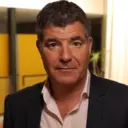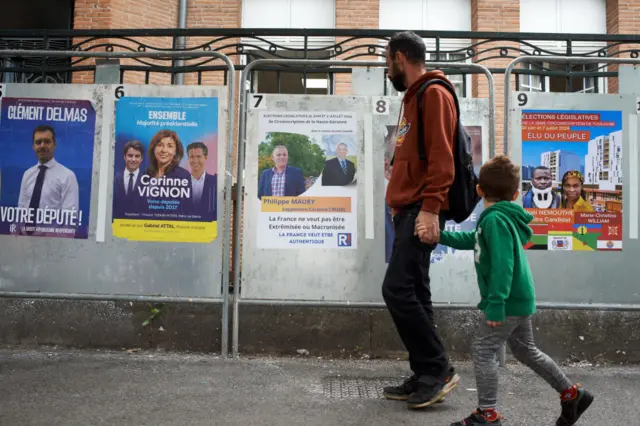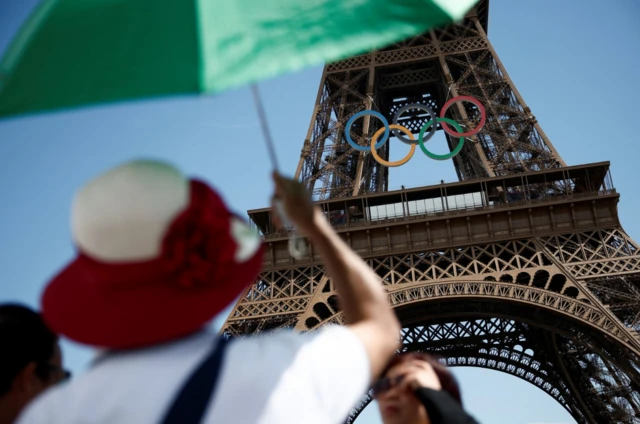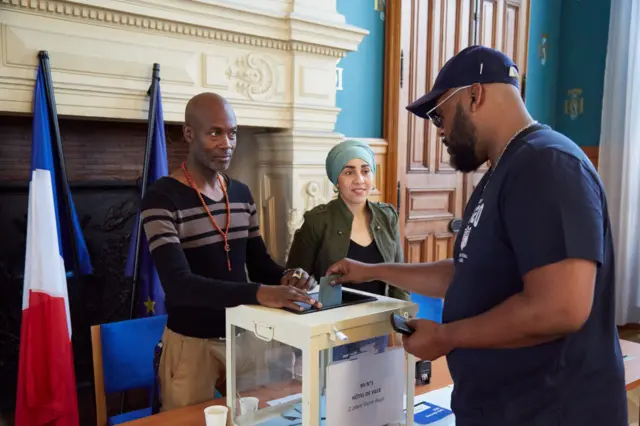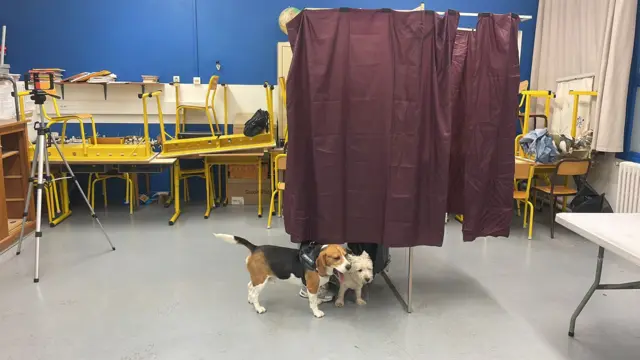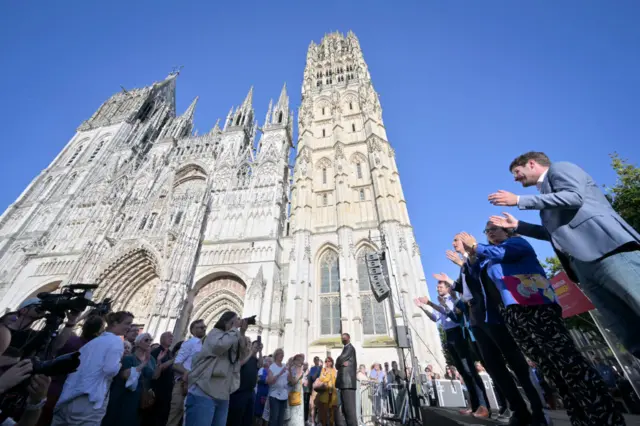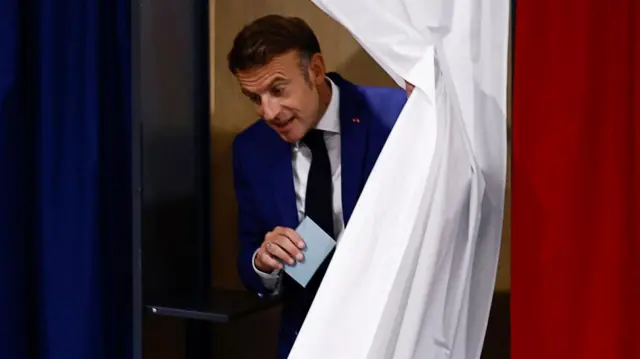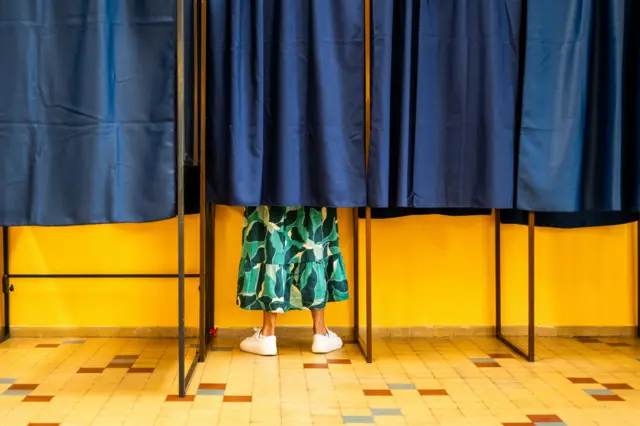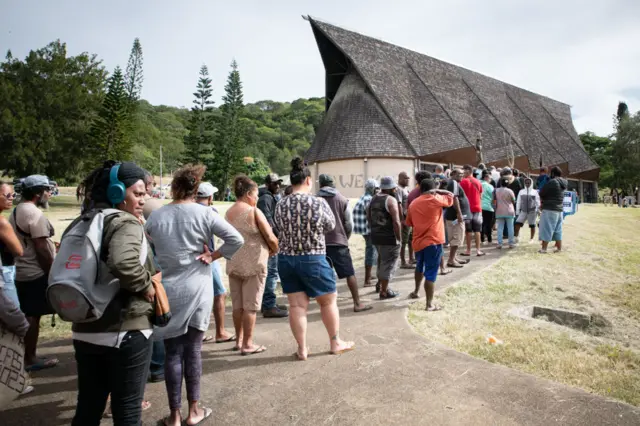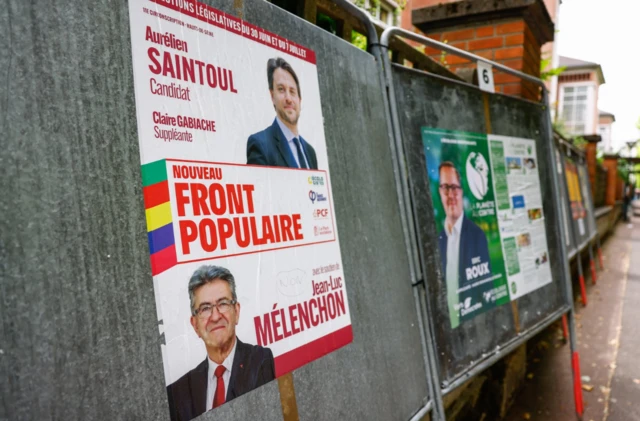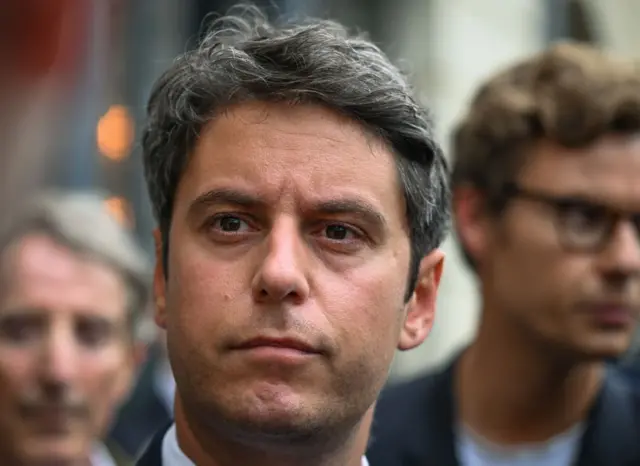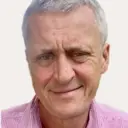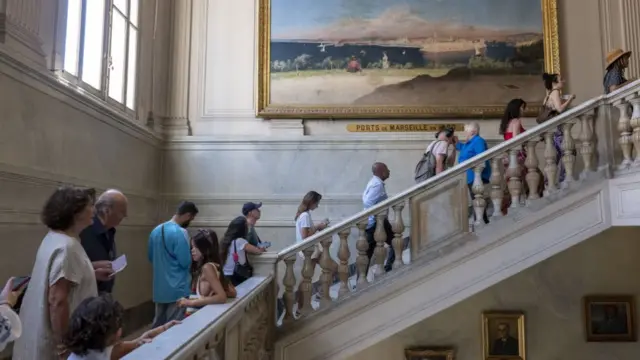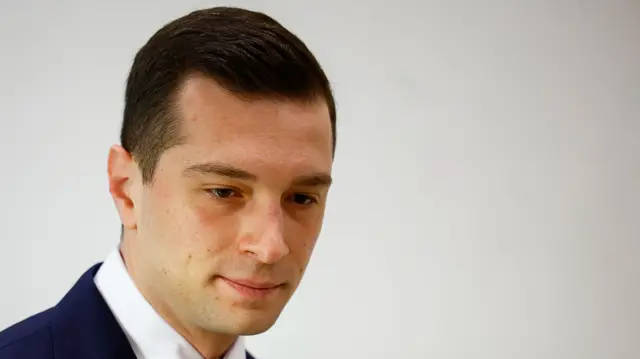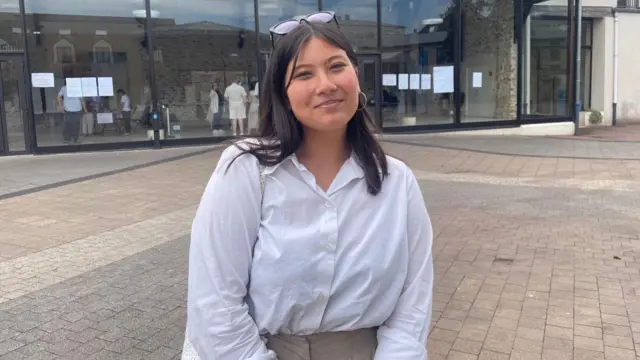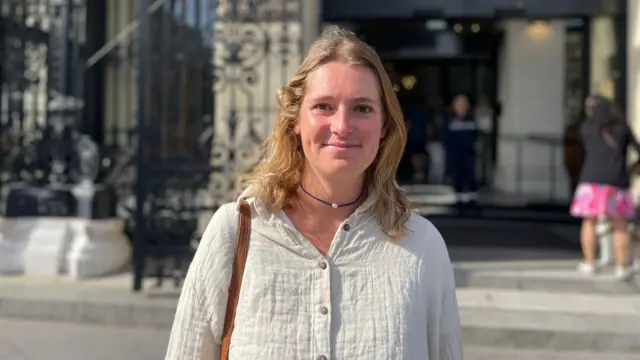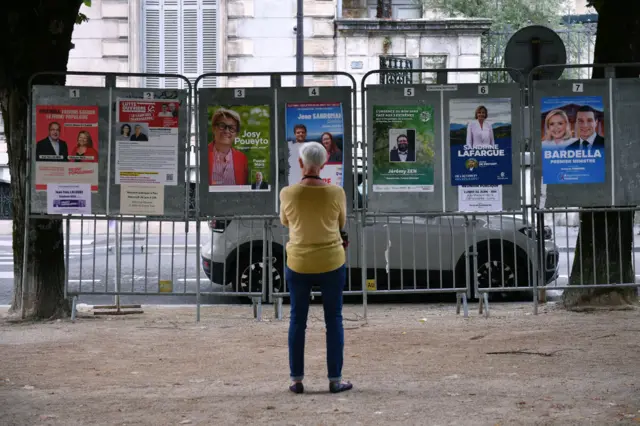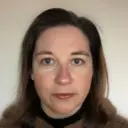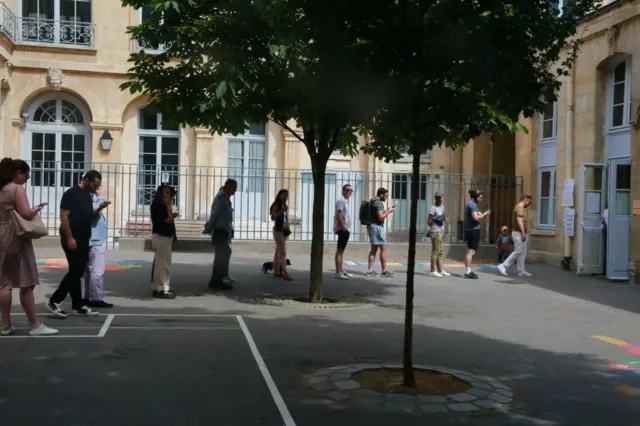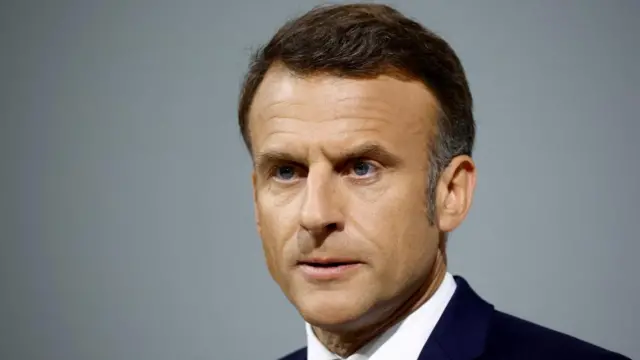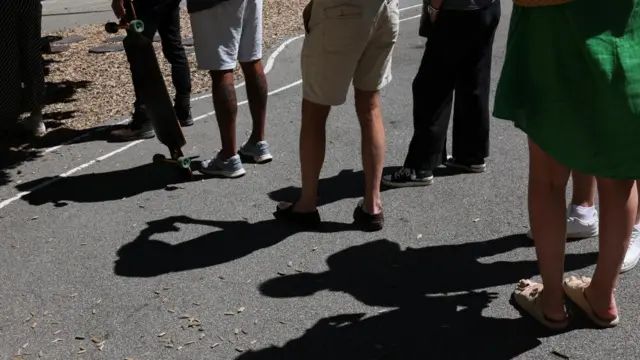Is Macronism over in France?published at 17:34 BST 30 June 2024
 Paul Kirby
Paul Kirby
Europe digital editor in Paris
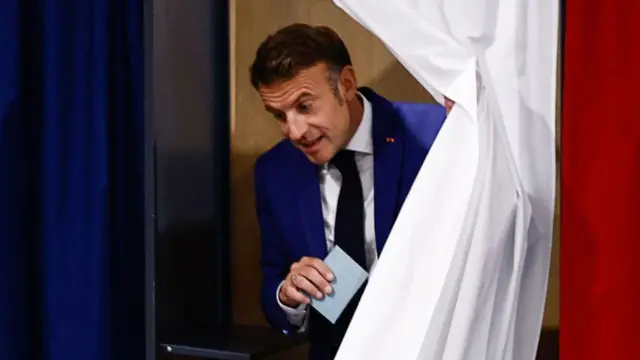 Image source, YARA NARDI/POOL/EPA-EFE
Image source, YARA NARDI/POOL/EPA-EFEPresident Macron voted on Sunday in Le Touquet on the north coast
Emmanuel Macron's rise to power in 2017 was something of a whirlwind for French politics, so the question is whether his time is over.
Talk to voters and there is a sense that many have had enough of his style of politics. Some call him a narcissist, others are downright angry with him, and opponents complain he's on the side of the rich.
The president's name and picture rarely figured in his Ensemble party's campaign - there was a fear he was a turn-off for voters.
Macron's popularity has fallen, especially since he decided to call these elections without consulting his prime minister or anyone else in his government.
But his argument for doing so is to break two years of stalemate in France's hung parliament.
The "disorder" of recent months can't go on, he says. But will this election clear that logjam, or has he just handed power to the far right?
